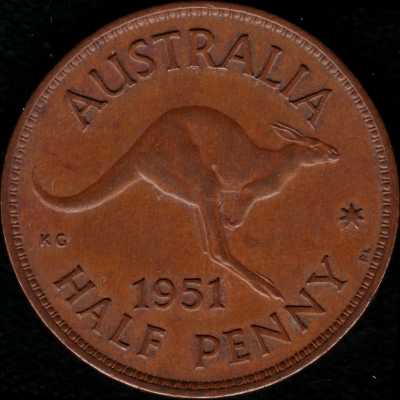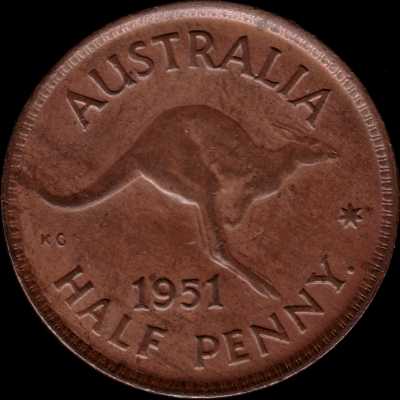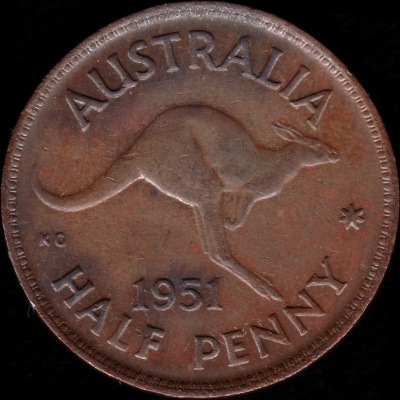
PL on rim between Y and star.

H51P.5B.1
Both these coins have a dot after the Y.

H51P.5B.2
No mint mark.
|
|
Australian halfpennies dated 1951 were minted in Perth and London, but part of
the London issue was subcontracted out to the Heaton Mint in Birmingham and the
British issues are indistinguishable. Apart from that, the coin occurs in five varieties.
|
Designation |
|
|
|
|
|
|
Mint |
|
|
|
|
|
|
Mint mark |
|
|
| ||
|
Mintage |
|
|
|
|
|
|
Scarcity |
|
|
|
|
|
The table above probably deserves a bit of explanation.
1951 saw the introduction of a new obverse die (5) which was used only at the
Perth mint. However some coins were struck using the older type 4 obverse dies left
over from 1949. As well as occurring in two die pairings, the Perth halfpennies
also occur with and without a mint mark. This yields four distinct Perth varieties.
The PL issues are common, representing nearly 30% of the total mintage for the
year. The Royal Mint at Tower Hill struck 6,960,000 coins and the Heaton Mint in
Birmingham struck the remaining 5,040,000.
The Perth issues without a mint mark are scarce and the coins with the newer
obverse are less common than those with the older one. The coin with no mint mark
and the older obverse has been described as rare but recent experiences suggest
that it is not too hard to find. I have 42 halfpennies dated 1951 and by variety
my counts were as follows:
I should point out that most of my 1951 halfpennies came from a U.S. dealer's stock book so my sample may not be representative of the distribution in Australia.
H51L.4B
15
H51P.4B.1
17
H51P.4B.2
2
H51P.5B.1
6
H51P.5B.2
2
 |
H51L.4B PL on rim between Y and star. |
 |
H51P.4B.1 H51P.5B.1 Both these coins have a dot after the Y. |
 |
H51P.4B.2 H51P.5B.2 No mint mark. |